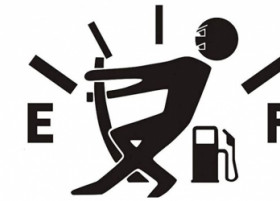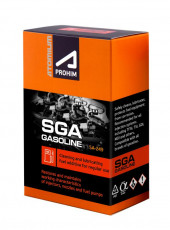Introduction
If you’re not a car expert, you may not know that most vehicles manufactured after the 1980s are designed with engines that make use of a fuel injector. This component is essential in the smooth operations of your car’s engine.
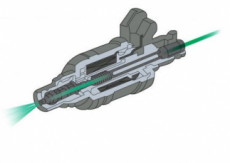 Primarily, a fuel injector provides an adequate supply of fuel to the engine that ensures its proper functioning and combustion process.
Primarily, a fuel injector provides an adequate supply of fuel to the engine that ensures its proper functioning and combustion process.
This must be optimized at proper intervals to ensure a smooth and unhindered driving experience.
The engine receives fuel through the injector in the form of a spray through the nozzle of the component which contains the proper mixture of air and fuel.
It’s an extremely important component in your vehicle and any issues with the fuel injector can result in many mechanical problems. To detect and determine if your engine is facing issues with the fuel injector and to find easy solutions, Read ON!
How a Fuel Injector Works
Let’s take a look at the inner workings of a fuel injector. The injector’s function is to ensure that the engine is provided with fuel when required, taking into account factors such as fuel quantity and concentration.
The Engine Control Unit (ECU) is the digital component featured in modern automobiles that oversees and controls a variety of individual aspects, including the fuel injector. By utilizing sensor technology, the ECU detects the need for fuel supply to the engine and regulates the process accordingly.
Problems with Fuel Injectors
If your fuel injector isn’t working properly, this is a major issue. The following are some of the problems you may be facing.
How To Tell If Fuel Injector Is Clogged?
This is a major issue because it prevents fuel from hitting the intake manifold. If you leave your automobile sitting idle for a prolonged period, you may develop clogged fuel injectors.
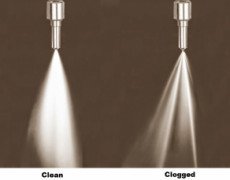 Deposits, impurities, and contaminants in the fuel cause injectors or their filter baskets to become clogged. A fuel injector can become clogged by contamination or sludge that gets collected within the filtration basket or the injector itself, causing a decrease in the optimal flow of the fuel.
Deposits, impurities, and contaminants in the fuel cause injectors or their filter baskets to become clogged. A fuel injector can become clogged by contamination or sludge that gets collected within the filtration basket or the injector itself, causing a decrease in the optimal flow of the fuel.
Until the injectors themselves or the filtration basket have been unblocked, no quantity of intake or fuel-induced injector cleaner can address the issue. The only and most efficient way to deal with a clogged fuel injector is to remove it from the engine and have it cleaned professionally.
Can Fuel Injectors get Dirty?
Fuel injectors may become dirty over time because of hydrocarbons and contaminants, both of which are part of today's oils, along with engine sludge and carbon deposits, that may encrust the injector.
Fuel flow rate, atomization, and delivery of the injector are impaired and this can create all types of drivability and efficiency issues. The fast and repeated motions of the fuel injectors create friction, which causes large amounts of heat to be produced.
If, on the other hand, fuel additives are not poured onto the intake manifold, they may leave a stain on the injectors that ignite and becomes dry. As a result, the spray is ineffective and the pattern is unbalanced.
The good news is that a dirty fuel injector does not require replacement with a brand-new component. Instead, you can get some use out of your existing one. This can be achieved through the use of a good cleaning product.
Atomium Aprohim™ SGA fuel additive gently cleans fuel equipment, lubricates it, protects it from corrosion and prevents the formation of sludge.
What If Your Vehicles’ Fuel Injectors Are Unable To Open?
There are a few explanations of why the fuel injector could be trapped shut, namely damaged windings or corrosion. If the fuel injector does not open, it will not be able to pump petrol through the nozzle.
Is The Injector Unable To Close?
If there is a defective spring or a build-up of corrosion or fuel additives, this can cause the injector to not close properly, resulting in the possibility of fuel leakage.
How To Deal With A Leaking Fuel Injector?
The leakage of the fuel system will lead to poor efficiency, heavy gas usage, and hard starting. In certain instances, this may be very risky. Any external leakage of fuel could result in a fire.
The Symptoms of a Bad or Failing Fuel Injector
If you suspect your vehicle’s fuel injector is faulty or is not performing its function as well as it should, it’s worth keeping an eye out for symptoms to indicate the underlying issue.
 If your injector is defective, it can prevent fuel from being provided properly to the engine completely. In case the injector is faulty but still operational, it will still be unable to follow the correct intervals at which it is to be sprayed. In any case, a faulty fuel injector seriously compromises the health of your engine and the safety of your vehicle.
If your injector is defective, it can prevent fuel from being provided properly to the engine completely. In case the injector is faulty but still operational, it will still be unable to follow the correct intervals at which it is to be sprayed. In any case, a faulty fuel injector seriously compromises the health of your engine and the safety of your vehicle.
Symptoms of a completely broken injector and a partially functioning one may be indistinguishable at first sight, and it's always a wise choice to use a reliable fuel injector cleaner to lubricate your engine before investing the amount to get a new one.
Another option is to have the components professionally cleaned by a serviceman. You can also purchase a cleaning kit and take matters into your own hands.
Issues with Engine Idling and Misfiring
One of the biggest symptoms of a faulty fuel injector is that the car will start to shake violently when the RPM drops below a certain threshold. This is due to the inefficient supply of fuel to the engine caused by the injectors.
This can prevent your vehicle from running smoothly when at a stop. Often, the presence of this issue can cause your car to turn off when RPM is close to zero, which is a major inconvenience on the road.
Another related issue is that of misfiring. Your engine misfires when something is preventing the smooth supply of fuel as required.
This can lead to a huge delay when speeding up, as the engine cannot properly ignite the fuel it needs to propel the car forward efficiently.
Issues with RPM and Warning Lights
Another issue that defective fuel injectors can cause your vehicle is RPM issues. These issues are caused by a phenomenon called engine surge.
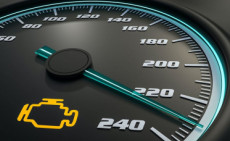 The main idea is that your engine is being provided with too much or not enough fuel, and this causes various problems with acceleration and engine load.
The main idea is that your engine is being provided with too much or not enough fuel, and this causes various problems with acceleration and engine load.
Modern vehicles often come with detection systems and failsafe features such as a ‘Check Engine’ light. If you have a faulty fuel injector, your light is sure to be on.
It’s worth visiting a mechanic to identify exactly what is causing your light to turn on, as it can also indicate other issues that are not immediately apparent.
Leaking and Smell of Fuel
A completely broken fuel injector will have to be replaced and cannot be used after service. One of the signs to look for when identifying a broken injector is fuel leakage.
Usually, the culprit is the cap of the injector. This component can wear down over time and can cause major issues in the car. These include injecting more fuel than required, which causes the leak and can also result in the smell of petrol emanating from the vehicle.
Fuel Wastage and Excess Fuel Emissions
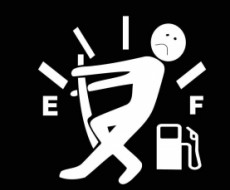 Another problem with a faulty fuel injector is that your car will try to compensate for the fuel it has not received by pumping more than is required into the engine. This can lead you to burn through your fuel tank much faster than you normally would. If you notice a sudden change in your car’s mileage, it could be a sign of a deeper problem.
Another problem with a faulty fuel injector is that your car will try to compensate for the fuel it has not received by pumping more than is required into the engine. This can lead you to burn through your fuel tank much faster than you normally would. If you notice a sudden change in your car’s mileage, it could be a sign of a deeper problem.
If your vehicle is burning excess fuel, it will also produce a surplus of emissions. This is harmful to the environment and extreme cases of defective fuel injectors can even cause the catalytic converter of your vehicle to malfunction.
Finding a Solution - additives
Fuel injectors don't last indefinitely, and you should take measures to preserve their life as long as possible. It is usually recommended to service your vehicle every 30,000 miles to keep the injectors in good shape.
A good precautionary measure to take is to purchase a reliable fuel injector cleaning product. One product to take a look at is the Atomium Aprohim SGA. This fuel additive gently cleans equipment, lubricates, and protects it from corrosion and the formation of sludge.
Atomium Aprohim™ SGA fuel additive gently cleans fuel equipment, lubricates it, protects it from corrosion and prevents the formation of sludge.
This restores the performance of fuel pumps and injectors and protects them from wear while extending their service life. Complete restoration of the fuel injection equipment improves the inflow of fuel, reduces fuel consumption, and improves dynamics.
Now that you have the right information to work with, you can begin diagnosing the issues that might have arisen with the fuel injectors in your car. Safe driving everyone!
